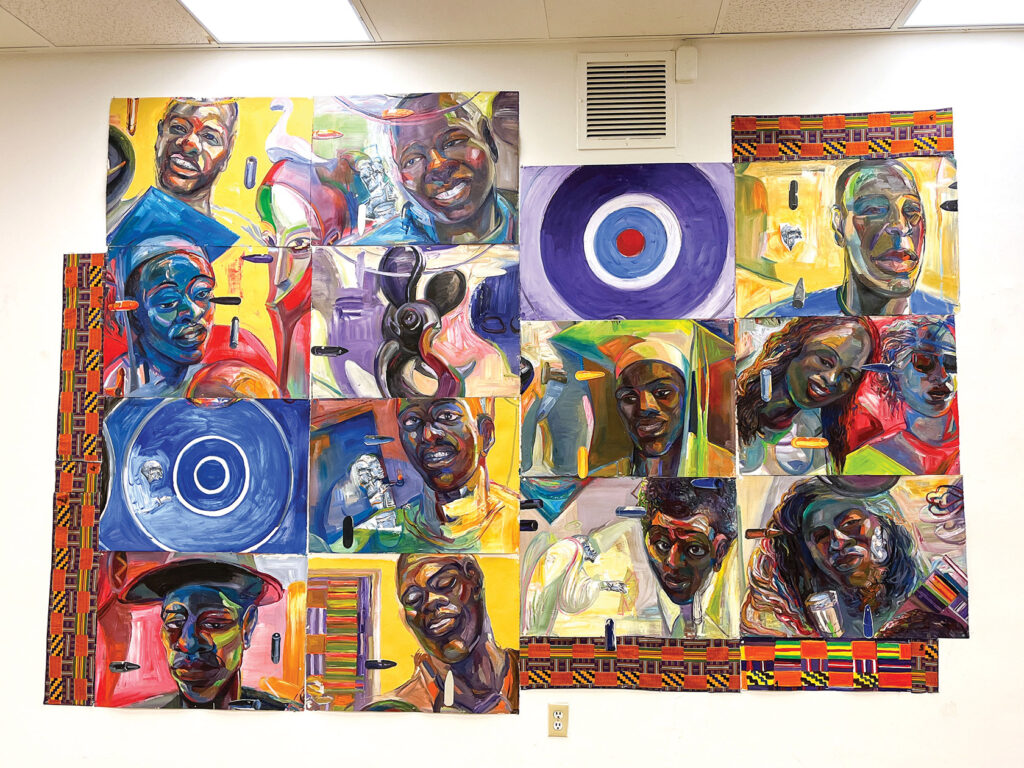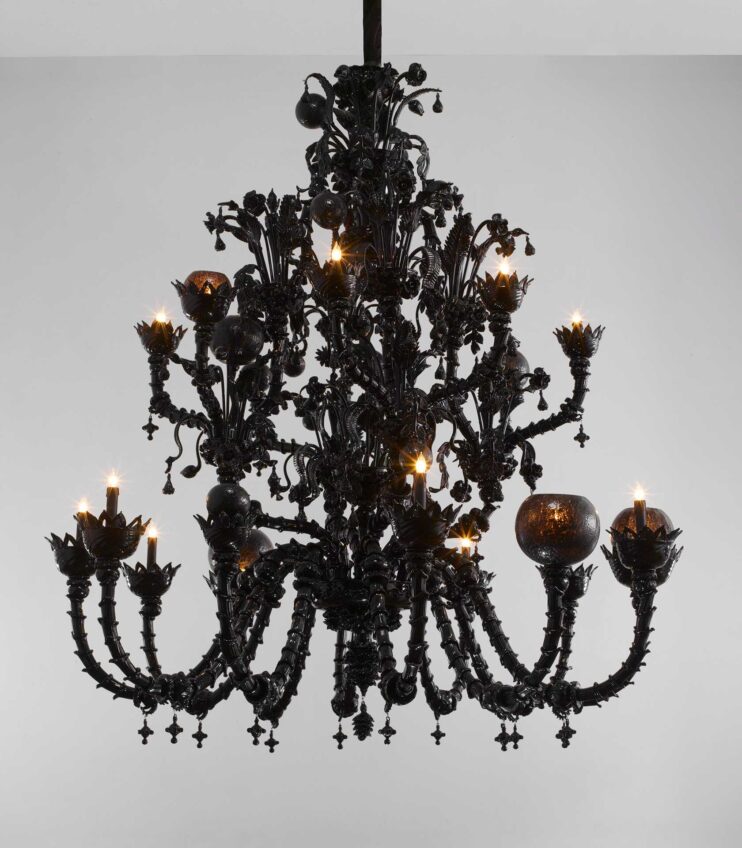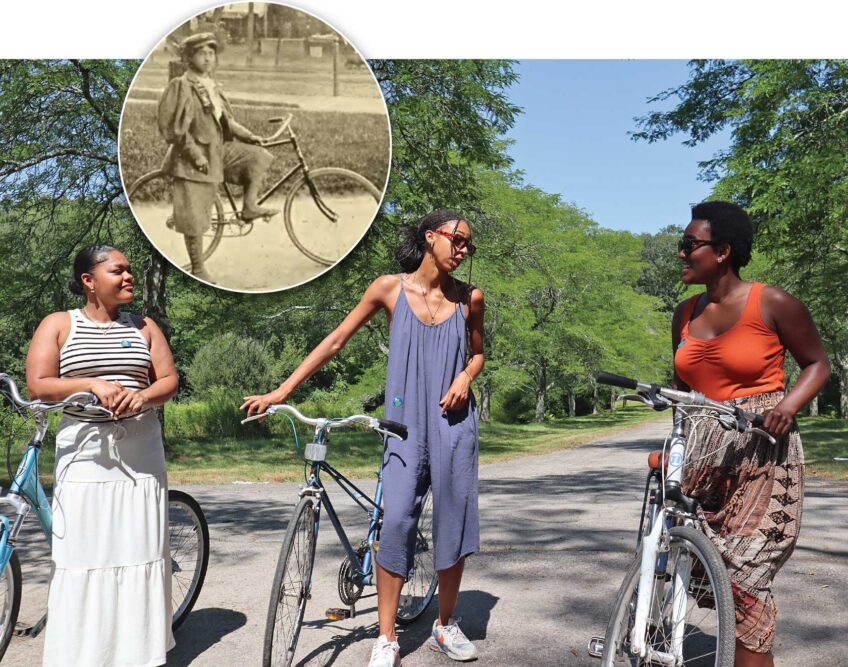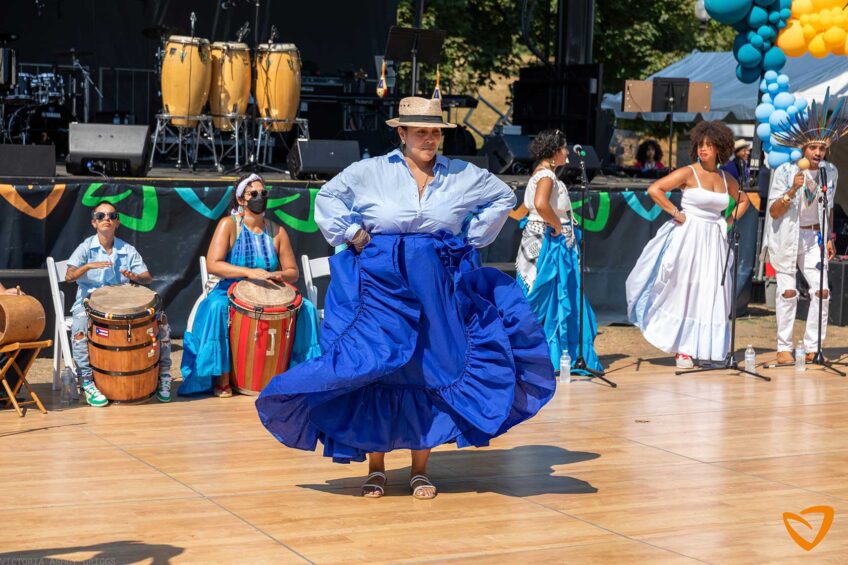
The African American Master Artists-in-Residence Program (AAMARP) in affiliation with Northeastern University has been a collective workspace and community of some of Boston’s most renowned Black artists for nearly 50 years. After a period of quiet and uncertainty due to the COVID-19 pandemic and program negotiations, AAMARP welcomes the public into their studio space for the exhibition “Resurgence: Homage to the Ancestors of the African Diaspora.”
“We feel like we’re coming out of the period where we were dormant. And we believe that this is an opportunity to recreate in some ways the wonderful things that the AAMARP brand has been about,” says photographer and professor emeritus of communications at Simmons College Reggie Jackson. Jackson has been involved in the program on and off since its inception and is a member of the executive committee.

“Crusader” by Jeff Chandler. PHOTO: CELINA COLBY
There are 14 artists-in-residence currently working at AAMARP’s studios at 76 Atherton Street in Jamaica Plain. Many of them have been with the program for decades. Walking through “Resurgence” is a veritable who’s who of Boston’s Black art scene. Poignant photographs by Jackson and Don West hang next to intricate textile works by Susan Thompson and L’Merchie Frazier. Dynamic paintings from Bryan McFarlane converse with sculptural wood pieces by Jeff Chandler.
The full program roster and the exhibition also include Gloretta Baynes, Marlon Forrester, Ricardo Gomez, Kofi Kayiga, Shea Justice, Khalid Kodi, Hakim Raquib, Askia Touré, Tony Van Der Meer and M. Clemencia Lee.
Legendary local artist Dana Chandler established AAMARP in partnership with Northeastern University in 1978. The program provided studio space and resources to the artists and the collective exhibited regularly around the city. Since then the program has been moved several times. AAMARP is currently in negotiations with Northeastern University about the future of the program and space.
In the meantime, the group is hopeful and planning for the future. Knowing how significant and difficult to come by accessible studio space can be, Jackson says AAMARP is beginning to identify the next generation of master artists who will hopefully benefit from the program.
“Right now, up on the fourth floor, we do have about six or seven younger artists exhibiting,” says Jackson. “And there are a couple of artists who have been in and out who we feel have what it, quote, unquote, ‘takes’ to be a part of all this.”

“Diptych” by Khalid Kodi. PHOTO: CELINA COLBY
These younger artists include Amy Araujo, Jaypix Belmer, Bejana Belizaire, Azia Carle, Nadroj Holmes, Radiant Jasmin, Sherwin Long, Jovietthe Ramos and Kwest Burns. In the gallery, their work is positioned directly next to a piece that honors artists and art advocates who have passed. The past, the present and the future are all in conversation here.
Jackson recalls earlier years, before COVID-19, when the AAMARP space was alive with visitors and collaborators. At one time a theater troupe would rehearse in the space, students worked on archiving cultural materials and community groups used the galleries for meetings and workshops. He hopes to continue those practices, connecting with the local community, as has always been a priority for AAMARP.
Originally intended to run through April, “Resurgence” has been extended through the end of May. Art lovers can visit the galleries at 76 Atherton Street Tuesday to Sunday from 12 p.m. to 6 p.m. Jackson says a closing celebration will likely take place in the last week of May. The details will be posted on the AAMARP Facebook group.
Looking toward the future, Jackson says, “We’re hoping that this time we can come up with something that really makes sense and that continues to meet the needs of the community.”







